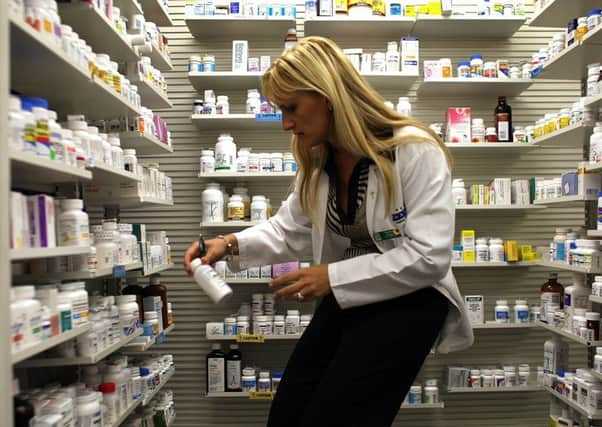MPs push for research on antimicrobial resistance


A report by the Commons health and social care committee said it wants to see “tangible progress” over the next six months to “reverse the worrying exodus” from research into antimicrobial resistance (AMR).
Antimicrobial-resistant infections claim at least 50,000 lives each year across Europe and the US alone, and 700,000 lives globally.
Advertisement
Hide AdAdvertisement
Hide AdThese figures are set to rise dramatically over the next 30 years, with the death toll estimated to be ten million a year by 2050 – higher than deaths from cancer and diabetes combined.
No new classes of antibiotics have been developed for decades. They are not seen as profitable by drug firms as new antibiotics are initially prescribed very sparingly rather than as a first-line treatment during their patent lives.
The report said that while in developed health systems it is possible to access alternative second- or third-line treatments when patients develop a resistant infection, mortality rates and costs of treatment are likely to be approximately double for a drug-resistant infection, generating an estimated cost to the NHS of £180 million a year.
It said options to address this market failure include changes to patent law and to the ways that pharmaceutical companies are reimbursed for new antimicrobial medicines.
Although in primary care there has been a 13 per cent reduction in the number of prescriptions for antibiotics in the past five years, there has been less progress in secondary care, and UK prescribing levels are still around double that of the Netherlands, Sweden and the Baltic states.
The report said a reduction in clinically unnecessary secondary care prescribing is clearly needed.
It said digital health tools for clinicians and policymakers can dramatically help to reduce the threat of antimicrobial resistance, but there has been great variation in the uptake of this.
The report also said that, in terms of Brexit, the government must make a clear commitment that any future trade deals will require any meat and dairy produce imported into the UK to meet at least the same standards relating to antibiotic use which apply to meat and dairy products produced in the EU.
Advertisement
Hide AdAdvertisement
Hide AdCommittee chairwoman Dr Sarah Wollaston said: “In six months we want to see tangible progress on implementing practical policies to reverse the worrying exodus from AMR research and development and both government and industry should play their part in tackling this issue.”